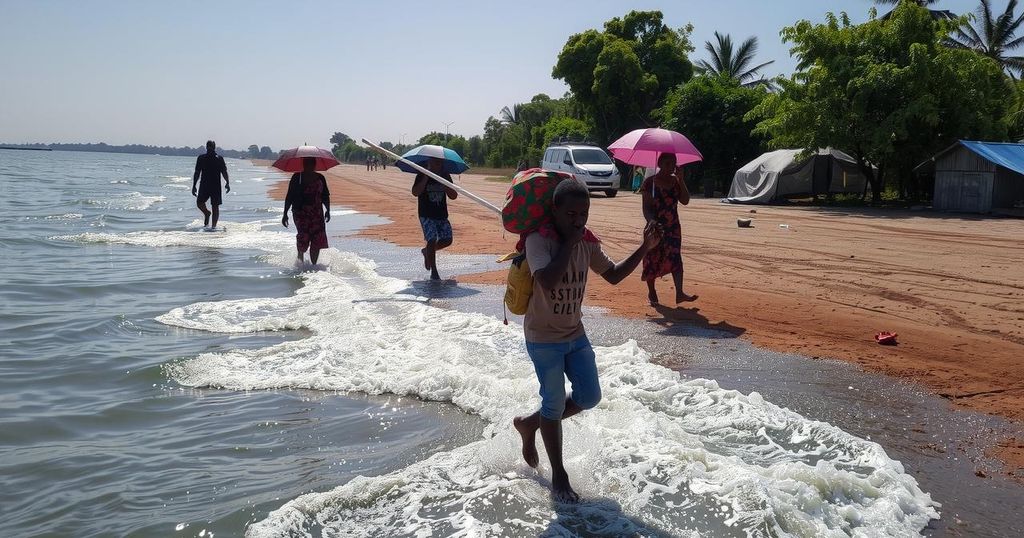Since the elections on October 9 in Mozambique, violence has led to the deaths of 248 people and prompted about 2,000 households to flee to Malawi. The unrest is fueled by contested election results, resulting in significant humanitarian challenges and fuel shortages in major cities.
In the wake of disputed presidential elections in Mozambique, a significant influx of refugees has crossed into Malawi, as violence escalates across the border. Since the polls on October 9, approximately 2,000 Mozambican households have sought refuge in Malawi’s Nsanje district. Local officials report that shelters have been established in schools to accommodate the displaced families. The unrest has resulted in at least 248 deaths, including those from a recent prison break that saw over 1,500 inmates escape from Maputo Central Prison. Tensions have heightened following the declaration of Daniel Chapo of the ruling Mozambique Liberation Front (Frelimo) as the election winner, which opposition leader Venancio Mondlane has vehemently contested, alleging fraudulent practices and calling for protests. These developments have further exacerbated fuel shortages in major cities like Maputo and Matola, adding to the humanitarian crisis in the region.
The current unrest in Mozambique stems from the controversial presidential elections held on October 9, where the ruling party, Frelimo, declared its candidate Daniel Chapo as the victor. The opposition, led by exiled leader Venancio Mondlane, has contested the legitimacy of the election results, claiming widespread vote manipulation. This has triggered months of protests and violent demonstrations, culminating in significant casualties and leading to a humanitarian situation that has compelled thousands to flee to neighboring Malawi in search of safety.
In summary, Mozambique is experiencing a severe crisis following disputed presidential election results, which have triggered violent protests and a tragic loss of life. The subsequent influx of thousands of refugees into Malawi highlights the urgent nature of the situation. The international community is called to provide assistance as the region grapples with the repercussions of political turmoil and humanitarian challenges.
Original Source: www.aa.com.tr







